Disclaimer: This blog post contains affiliate links. If you make a purchase through these links, I may earn a small commission at no additional cost to you. Learn More. Thank you for supporting our garden community.
Compost vs Manure: Which One’s Better for Your Garden?
When it comes to improving soil health and boosting plant growth, gardeners often debate between compost and manure. Both are natural soil amendments that enrich the soil, but they work in different ways and have unique benefits. So, compost vs manure, which one should you use? Let’s break it down and help you make the right choice for your garden.
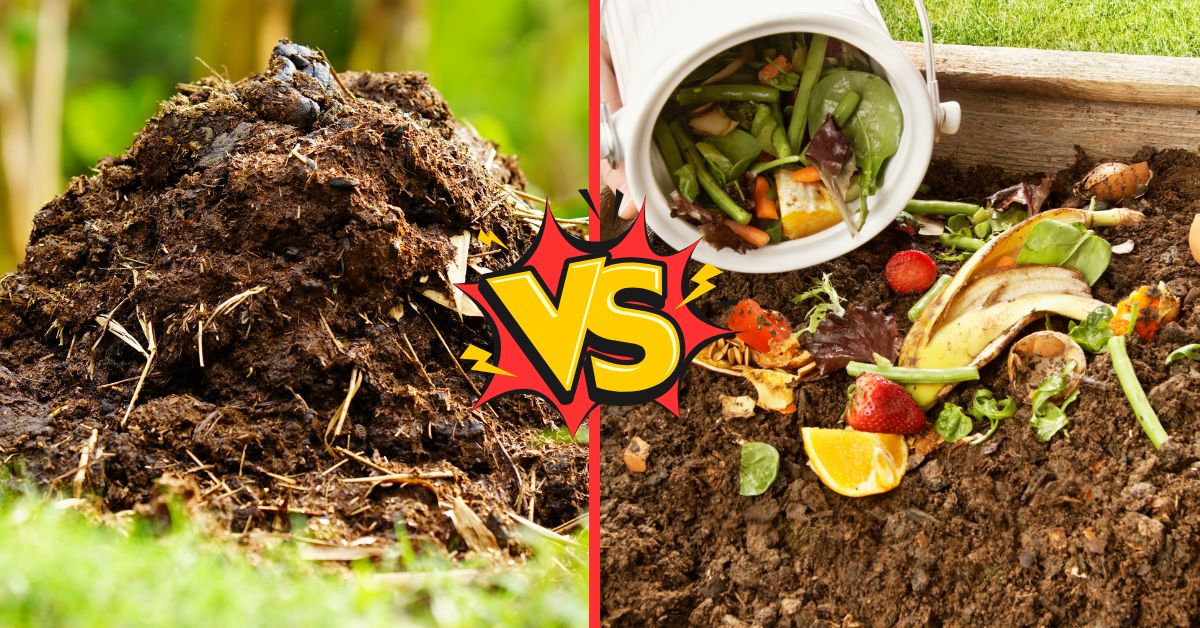
Compost vs Manure
Oftentimes, gardeners already have an opinion on which soil amendment is better. Of course, I have mine, but I won’t say until the end of the article, just to keep everything objective.
Either one can be a key amendment for your garden, often forming a large part of your soil mix.
So let’s see if I can clear up some confusion and help you decide which amendment is better for your garden.
That being said, let’s get right into compost vs manure!
Products:
Save 10% on your first Burpee seed order using code BURPEE10
Easy to Grow seed varieties from Burpee for guaranteed success
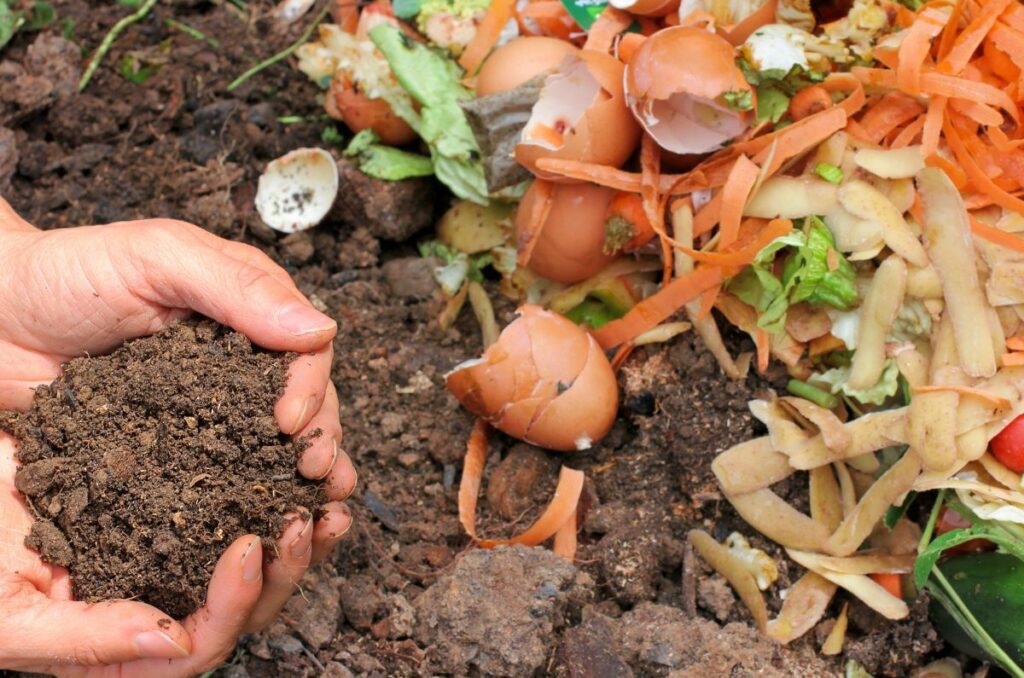
What is Compost?
Compost is just decomposed organic matter. It doesn’t require a specific formula to make it compost, but there are some things that are commonly used.
Food scraps, yard waste, cardboard, and other biodegradable materials are often used to make compost. This makes compost rich in nutrients and beneficial microorganisms.
Pros and Cons of Compost
| Pros | Cons |
| Improves soil structure, aeration, and drainage. | Very slow to break down (can take a year or two) |
| Feeds microbes with organic matter | Not really rich in nutrients |
| Encourages beneficial microbes that kill pathogens | Can be expensive if you’re buying it |
| Reduces landfill waste | Can produce odours early in the process |
Although I have included some cons here, I don’t think that they dramatically outweigh the pros. I would still say that compost is a great soil amendment, despite the bad things that can come with it.
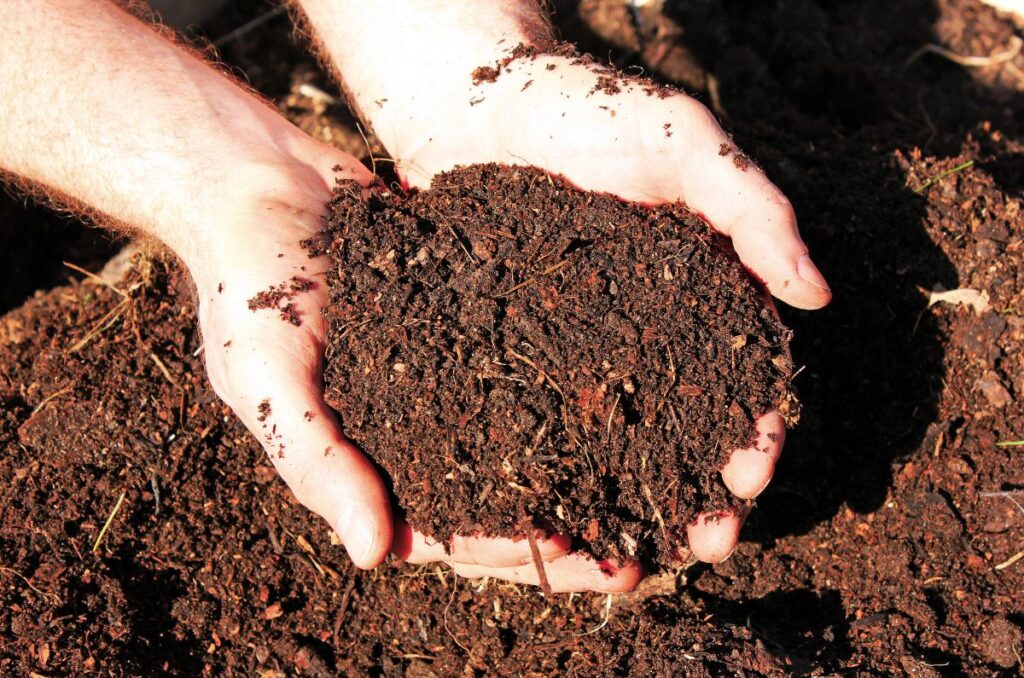
How to Use Compost in Your Garden
Compost needs to be fully broken down in order to provide the benefits to your garden. But it’s not like manure, where it can burn your plants.
Instead, using unfinished compost will basically be like adding mulch to your garden. So it’s important to let it fully break down before you use it.
To fully decompose, compost will take about 8-12 months. Some people say it only takes 3-5 months, but anyone who has actually made compost knows that that is dead wrong.
Once it’s fully decomposed, it’ll look exactly like soil; crumbly and earthy. At this point, you can add it to your garden at about 30-40% of the volume of soil.
I like to work it into the soil slightly, not a full flip or dig, just work it into the top layer of soil. Some people also like to add it to the very top of their soil as a mulch. I would only do that if you have a lot of compost and not a lot of mulch material.
This is what’s going to add the organic matter and beneficial organisms to your soil.
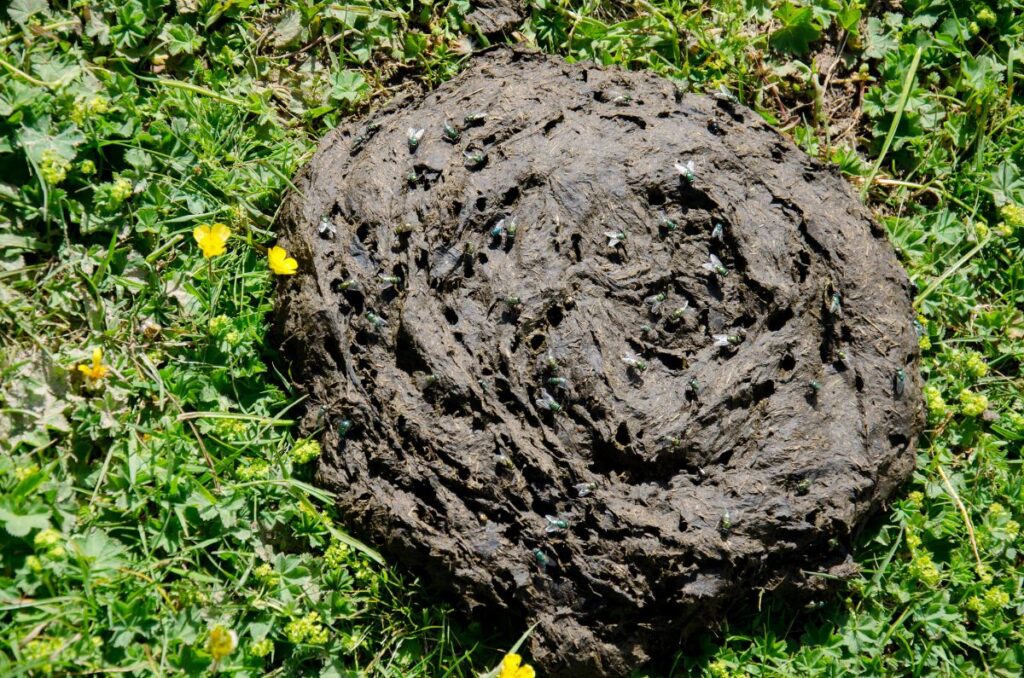
What is Manure?
Manure is animal poop, sometimes mixed with bedding materials like straw or sawdust. The most common animal poop used is from cows, horses, and sheep. But chickens, bats, rabbits, and other animals are used to produce manure as well.
The main difference is that it’s almost exclusively an animal product, unlike compost. Compost can have animal products in it, like eggshells, but it’s mostly plant material.
Pros and Cons of Manure
| Pros | Cons |
| Higher in nutrients | Risk of pathogens spreading |
| Great for heavy feeders like corn and tomatoes | Overuse can lead to salt buildup |
| Improves soil structure, drainage, and aeration | Can cause nitrogen burn |
| Recycles animal waste | Can produce a strong odour and attract flies |
Most of the cons associated with manure are caused only if you don’t compost it properly. And by compost, I don’t mean add it to your compost pile. I just mean to let it age and naturally compost itself.
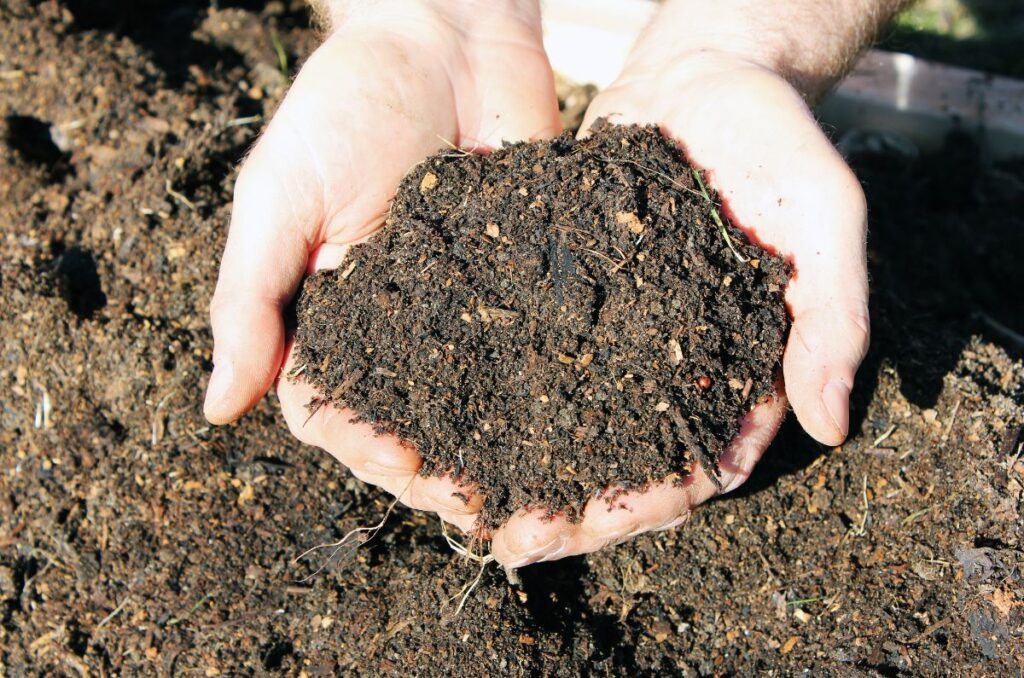
How to Use Manure in Your Garden
Before you use manure in your vegetable garden, it needs to be fully broken down and decomposed. This isn’t usually a problem if you’re buying it from a garden centre, but it is if you produce your own manure.
Now, I’m not talking about humanure, that’s a topic for another time.
But if you have animals, like cows, horses, sheep, or goats, then you probably have some spare poop going around.
This manure shouldn’t be used fresh in your garden. When it’s fresh, it attracts lots of bugs, harmful pathogens, and can burn your plants from too much fertilizer.
Manure is particularly high in nitrogen, which is necessary for plant growth. However, too much nitrogen all at one time can cause fertilizer burn.
And when the manure is still fresh and hasn’t decomposed fully, then it has way too much nitrogen for your plants.
Manure bought from the store is usually always fully aged by the time you buy it. But if you’re producing your own manure, then make sure it goes from a sloppy mess to a soil-like texture. This usually takes about 4-8 months.
Once it’s fully aged, you can mix it with your soil at about 30% of the total volume of soil. Some people who practice no-dig gardening just put the manure on top of the soil like a mulch. But I like to mix it in a little bit.
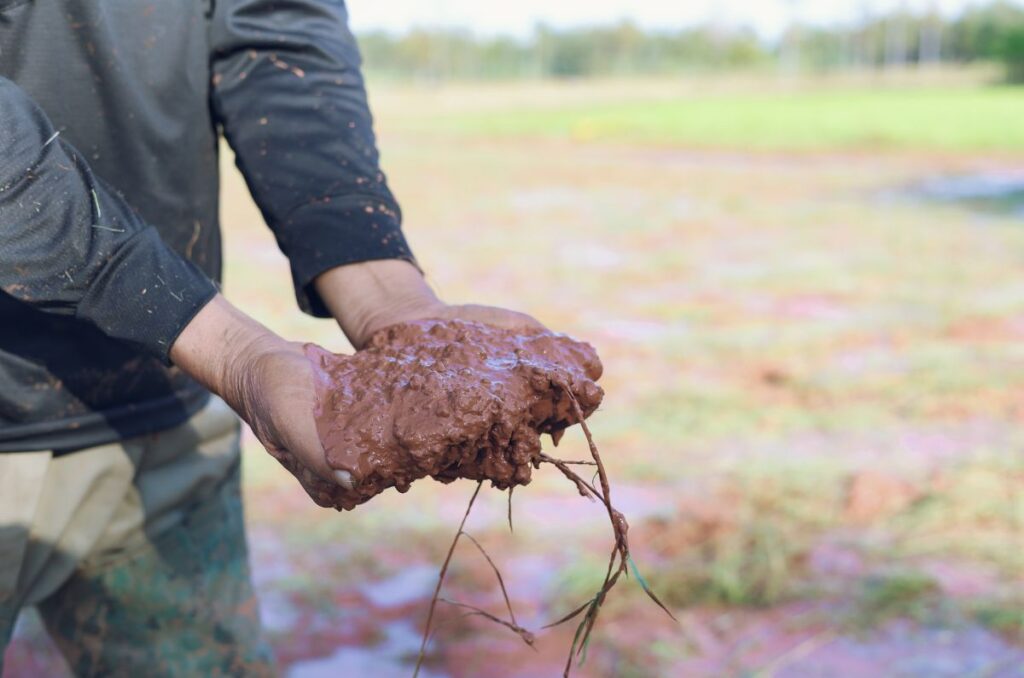
Is Compost or Manure Better for Clay Soil?
This is a tough question to give a straight answer to.
The main thing to do with amending clay soil is to add lots of organic matter. Organic matter helps to improve drainage, aeration, water retention, and microbial life. Both compost and manure have lots of organic matter.
When trying to fix clay soil, you need to add at least a third of the volume of soil in organic matter. This can be achieved with either compost or manure.
So you can use whichever one you have available, whether you make your own compost or buy your manure from the nursery.
Does Manure Cause Salt Buildup?
Firstly, when I say “salt,” it could mean salt as in sodium chloride (table salt), but it also refers to any ionic compound found in manure.
These can be salts made with calcium, magnesium, potassium, or ammonium. For example, ammonium nitrate is a salt (ionic compound) that can accumulate in your soil from manure.
These salts come from what the animals eat and how they digest it, which then ends up in the manure. And if you’re putting it in your garden, then the salts are going into your soil.
Don’t get me wrong, salts are not inherently bad for your plants. They’re actually necessary for healthy growth. Plants need calcium, magnesium, potassium, and other ions that are only available in ionic compounds.
It becomes a problem when there is too much, because too much will cause fertilizer burn. If you use too much manure, your plants won’t use all the nutrients, meaning the salts will build up in your soil.
To prevent this, just use the correct ratio of manure to garden soil. Typically around 30% of the total volume in manure is good.
Also, adjust the quantity of manure based on which plants you’re growing. For example, vegetables like lettuce, peas, and radishes are considered light feeders, meaning they don’t need as much nutrition to grow properly.
On the other hand, plants like peppers, eggplant, and cucumbers are considered heavy feeders. This means they need lots of nutrients to grow properly.
So adjust the amount of manure based on the plants you are planning to grow and you should be fine.
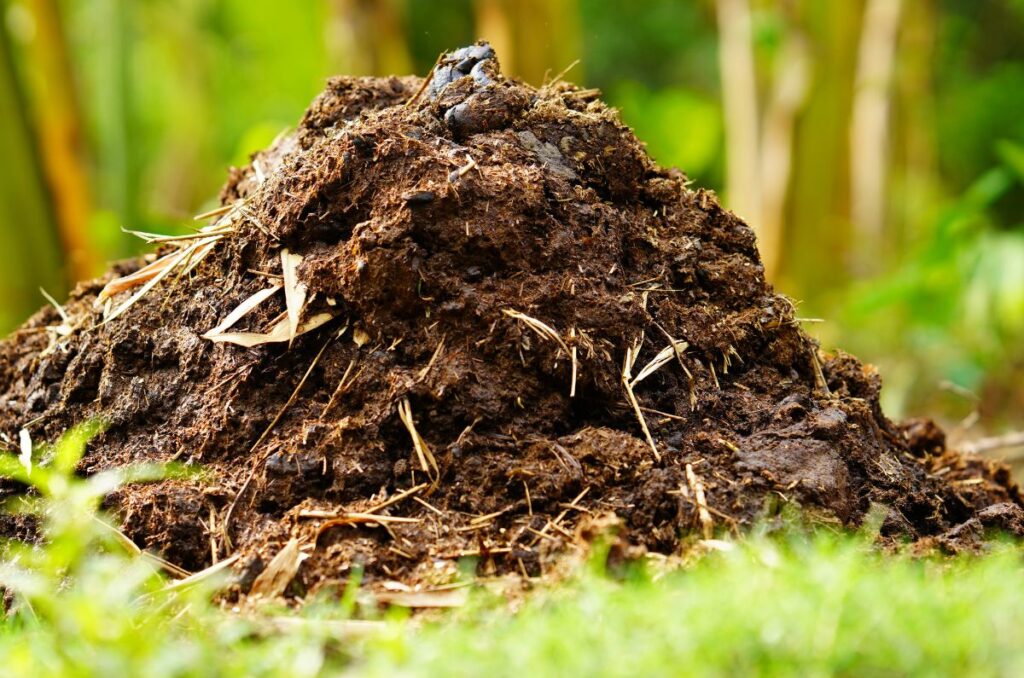
Compost vs Manure: Which One do I Use?
If you’re still a little bit confused on which one to choose for your vegetable garden, let me break it down for you.
Both compost and manure generally give your garden the same benefits. The only thing that distinguishes them is where they come from and how they’re made.
Compost comes from mostly plant sources, while manure is exclusively from animals. This means that we can easily make compost at home, while the vast majority of us can’t make manure at home.
So you should use compost if you’re making it yourself. Store-bought compost is often really poor quality, meaning it doesn’t have as much life in it as homemade compost.
And if you do find a high-quality commercial compost, then it’s probably going to be so expensive that it’s not even worth it.
For manure, most commercially-available brands are fairly high-quality. I mean you really can’t go wrong, it’s animal poop.
And manure is usually pretty cheap; apparently there’s lots to go around.
In short, choose compost if you’re making it yourself and manure if you want to buy it.
For me, I like manure better than compost. I don’t know why; I guess there’s just something special about spreading animal waste over your garden and eating the plants grown in it. Truly beautiful!
Can I Use Compost and Manure?
Many gardeners like to split the difference and use half compost and half manure. I do this sometimes as well.
If you’re making your own compost but you don’t have enough for your entire garden, then you can supplement it with store-bought manure.
This gives you the best of both worlds.
Frequently Asked Questions
Compost and manure are used in exactly the same ways in the vegetable garden. Mix it with your soil at about 30-40% of the original volume.
The only way you can use too much compost is if you are growing light feeders and you already have good soil. This will cause nutrient burn. But if you have poor soil and you’re growing any warm-season fruiting crops, then it’s almost impossible to add too much compost to your soil.
Manure is great for all vegetables, assuming you’re using the right amount.
Generally speaking, the larger the animal, the weaker the manure. For example, cows, sheep, and horses produce manure that is nutritionally weak compared to chicken manure. These are the best for most applications. Chicken manure is generally considered an organic fertilizer.
Any decomposing organic matter can attract pests. If the material is fully broken down, decomposed, composted, then it shouldn’t attract any pests, whether it’s compost or manure.
Even More Gardening Ideas
Here are a few more posts to get the ball rolling in your garden!
- How to Grow Cucumbers from Seed to Harvest
- 5 Easy Tomato Trellis Ideas for ANY Garden
- Is Window Light Enough for Seedlings?
If you liked this article, make sure to share it with your friends and family members who are also looking to sharpen their gardening skills. Also, consider signing up for our email newsletter; don’t worry, we won’t send you spam, just fresh gardening ideas every week!
If you want to learn more about vegetable gardening, make sure to check out what I’m doing on Facebook, YouTube, and Pinterest.
Pin this post for later:
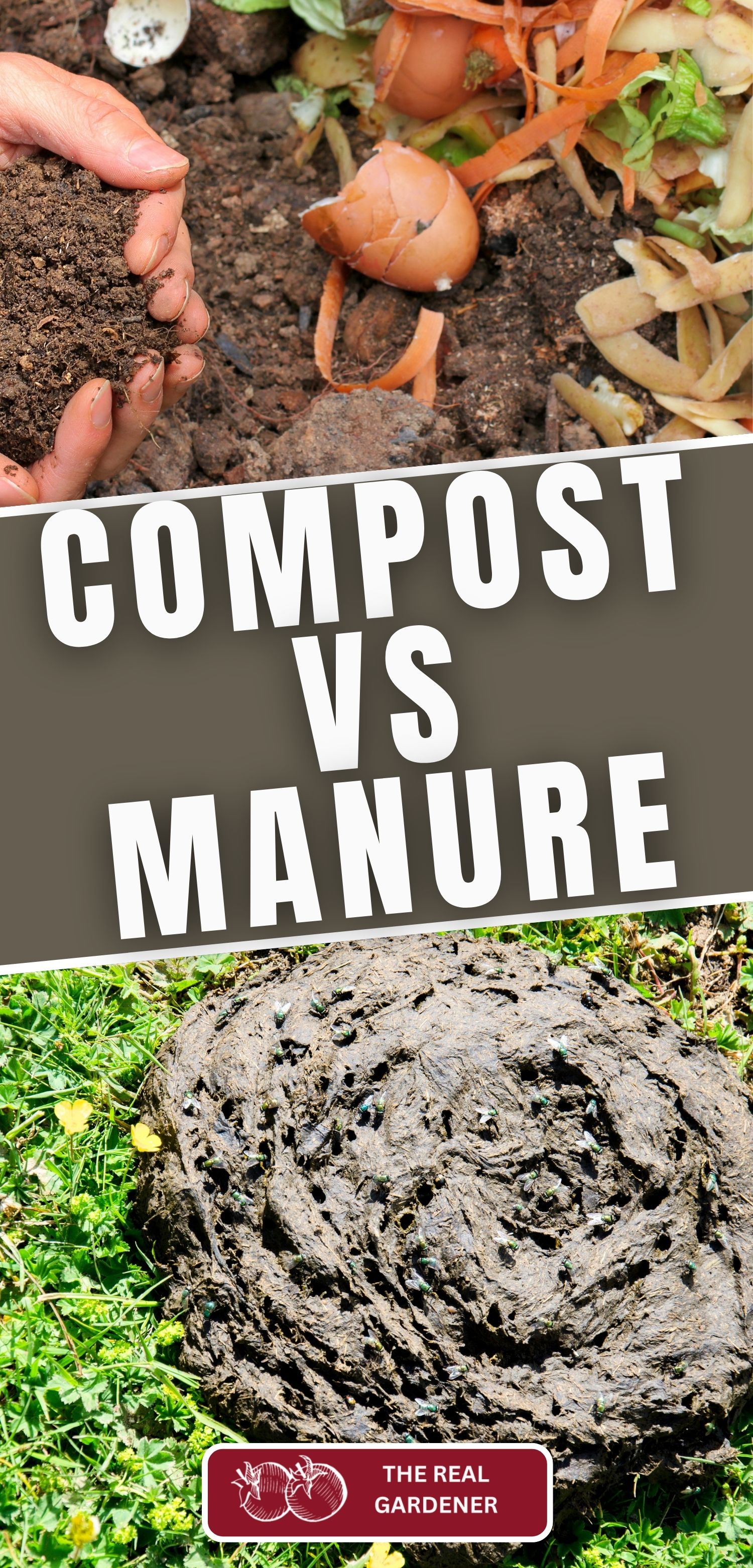
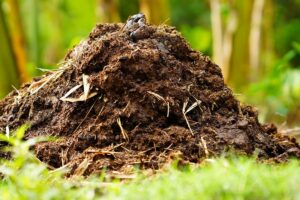
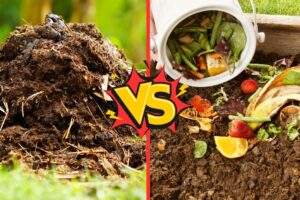
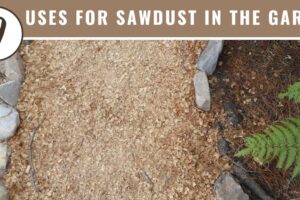
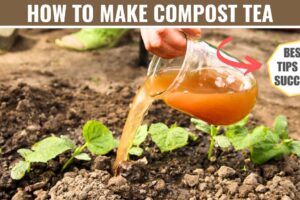
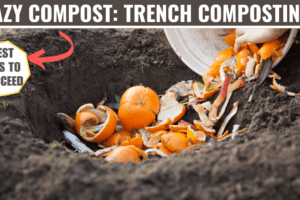
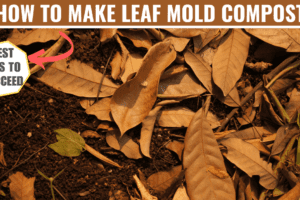
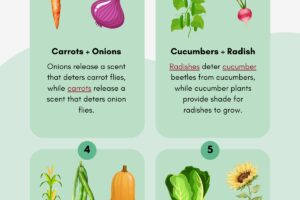
Leave a Reply